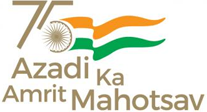NCWEB
After the establishment of University of Delhi in 1922, an amendment of Delhi University Act in 1943, Women students were enabled to give examination with special coaching but without attending regular classes. This gave shape to the Non¬-Collegiate Women's Education Board (NCWEB).
Only women students residing in the National Capital Territory of Delhi can enrol themselves as students of the Board. The Board began functioning in September 1944 with 3 students. At present, the enrolment is more than 31,000.
Till 1971, classes for the Undergraduate and Postgraduate courses were held at the Arts Faculty Complex. Due to the steep increase in the number of students, space became a serious problem and several Centres had to be opened in various constituent colleges of University of Delhi.
The classes are held either on Saturdays or on Sundays and during academic breaks of Delhi University. There are 50 teaching days in a year.
Classes are held from 8:30 a.m. to 4:00 p.m. at the Under-graduate centres. There are six periods in a day.
The Board gives financial aid and book loan facility for the academic year to the needy and deserving students. A major advantage of the non-Collegiate programme of teaching is its low cost and utilization of the existing infrastructure of educational institutions during Saturdays/Sundays and academic breaks.
Guest Faculty are deputed as per the guidelines set by UGC/ DU norms to teach the Non¬-Collegiate students.
Vision Statement
VISION
Reach out to the First-Generation Women Learners of the Society
Key inspirations for the Board:
Empowering Women through holistic development
Social change by enlightening the minds of women through academics and skill
training to increase employability
Training women workforce leading to emergence of an egalitarian society
Education through sustainable means
Optimum use of existing infrastructure
Mission Statement
Mission Areas
Educate a Woman, Educate a Generation
Enabling Women
Pillars of the Future
Leaders of Equality and Development
Skill Development
Hunar se Rozgar tak
Increasing employability
Empowering the Nation

